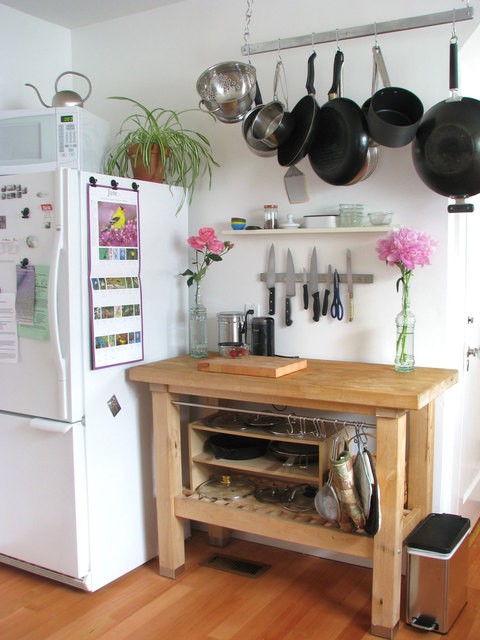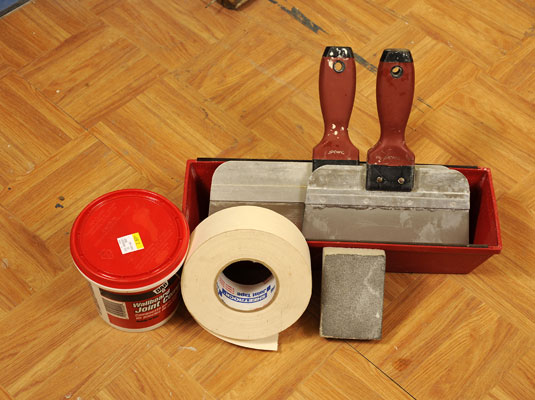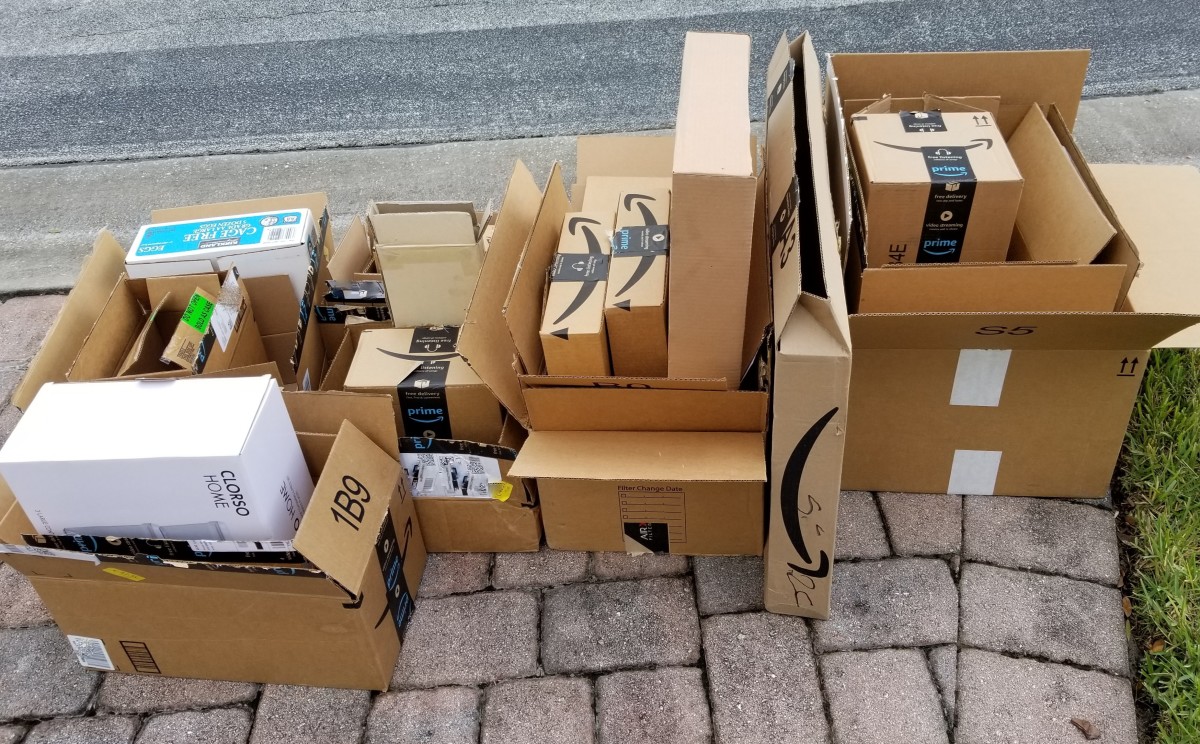Maximizing Space in Small Kitchens

Maximizing space in a small kitchen can take a little creativity, and it may be especially difficult for someone who is downsizing or buying a home that was built when kitchen size was not a priority. It is important to use the space you have and being practical with storage and placement. Check out these tips for ways to make the most out of your small kitchen:
-
- Create a pot rack with a sturdy stylish towel rack and S-hooks.
-
- If drawer space is at a minimum, keep cooking utensils nearby in an unused cookie jar on the counter, or hang them from small nails on the inside of the cabinet doors.
-
- Spice racks can also be mounted to the insides of cabinet doors to free up storage space.
-
- Domestically Speaking has a simple how-to for adding tip-out storage onto false drawer fronts for smaller items like sponges and scrub pads.
-
- If pegboard storage is good enough for Julia Child, it’s good enough for our kitchens! It can be cut to fit any wall space, painted to match any decor, making it a stylish and convenient place to hang cookware.
-
- Use magnetic strips to store cutlery or small jars with metal lids on the side of the fridge.
-
- If the cabinets do not have soffits, utilize that space for lesser-used items. Think out-of- the-box storage, too: keep extra paper towels, disposable plates, or other items that will take up room in more important areas.
-
- Very small kitchens leave little space for a table or an island, so mounting a folding table or shelf to the wall can help you during prep or mealtimes and fold out of the way when you don’t need it.
-
- A butcher block stove cover will add useful counter space where space is lacking. It will also keep from having to find a place to stash a cutting board, as it will already be on display!
-
- Departments and home stores have many different varieties of moveable kitchen carts.
-
- A cart will offer a prep area as well as storage that can be tucked away when not in use.
The average size kitchen is 70 square feet, according to the building industry, and many homes have an even smaller space. Take a few extra steps to make the space in your kitchen work best, and you will see a difference in meal prep time and clean up, making mealtime more enjoyable!
Courtesy of New Castle County DE Realtors Tucker Robbins and Carol Arnott Robbins.
Photo credit: design indulgences







.jpg)






